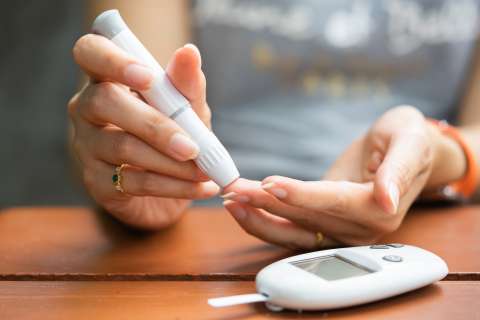Dear Doctors: I stopped eating sugar while I was losing weight last spring and summer. When holiday sweets started showing up at the office and at parties, I really indulged. I noticed that hip pain from rheumatoid arthritis, which stopped while I was dieting, came back again. Did the sugar do this?
Dear Reader: For a few decades now, studies have identified added sugars in the diet as a contributing factor to a range of adverse health conditions. These include Type 2 diabetes, increased body fat percentage, obesity, cardiovascular disease and metabolic syndrome.
More recently, as researchers have widened their focus, a number of studies have drawn a connection between added sugar in the diet and an increased risk of developing chronic low-grade inflammation. Although inflammation is often understood to be a bad thing, the key word in that previous sentence is “chronic.”
Low-grade inflammation is actually an important tool the immune system uses to fend off potential threats. When things are working properly, immune cells known as inflammatory macrophages get alerted to a problem. They arrive at the site, perform needed maintenance and, when their work is done, recede. The departure of the macrophages ends that particular episode of inflammation. But sometimes the immune system malfunctions. The macrophages don’t retreat, which means that the low-grade inflammation persists. This leads to gradual and ongoing damage to the body’s own tissues.
Chronic low-grade inflammation is known to play a role in a wide range of autoimmune diseases. This includes rheumatoid arthritis, or RA, the condition your mention in your letter. RA is a chronic inflammatory disorder that can affect not only the joints in the body, but also the internal organs. Unlike osteoarthritis, in which physical wear and tear gradually erodes the tissues of the joints, the damage in RA occurs due to chronic low-grade inflammation. It’s a mistaken response by the immune system, which has gone off-message and begun to attack the body’s own tissues.
The link between excessive sugar intake and inflammation is pretty straightforward. It involves cytokines, which are proteins that modulate inflammation. There are pro-inflammatory cytokines, which trigger an immune response, and anti-inflammatory cytokines, which ease the attack. Research shows that when the diet gets loaded up with added sugars, pro-inflammatory cytokines are released. They act as messengers, summoning and urging on the immune cells needed to deflect an invader. The result is inflammation and its accompanying physical symptoms. That includes the pain, swelling, stiffness and sensation of heat that are part of RA.

Based on the sequence of events you described, it’s possible the sudden and significant increase in sugar may have played a role in the RA flare. When you have RA, your levels of pro-inflammatory cytokines are already high. You went from removing a potential source of inflammation during the months you cut sugar from your diet to suddenly adding it in high amounts.
With the holidays are over, it would be wise to return to an anti-inflammatory diet. You don’t have to cut out sugar completely, but do prioritize your intake, and choose wisely.
(Send your questions to [email protected], or write: Ask the Doctors, c/o UCLA Health Sciences Media Relations, 10960 Wilshire Blvd., Suite 1955, Los Angeles, CA, 90024. Owing to the volume of mail, personal replies cannot be provided.)





